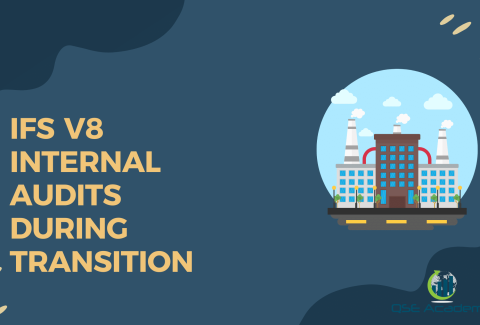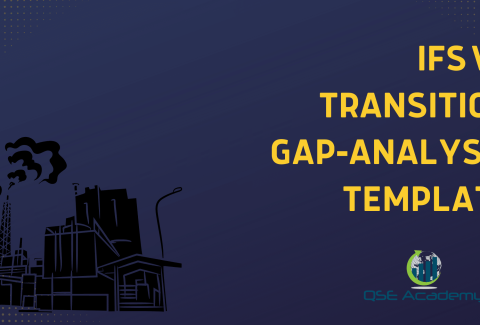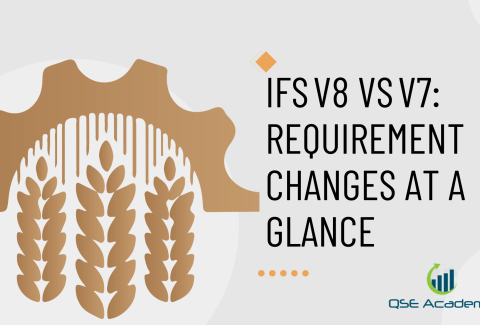Updating Supplier Agreements for IFS
Last Updated on November 19, 2025 by Melissa Lazaro
Why Supplier Agreements Matter More Under IFS V8
If you’re already certified to IFS or working toward it, you’ve probably noticed that suppliers can make or break certification success. It’s not just about buying ingredients or services — it’s about ensuring everything coming into your facility meets the same level of food safety, quality, and regulatory compliance that you’re accountable for.
I’ve worked with companies who had solid food safety programs but failed audits because their supplier agreements were either too vague or outdated. Under IFS V8, expectations around supplier control, communication, and responsibility are clearer — and stricter.
Updating supplier agreements isn’t busywork. It protects you from recalls, unsafe materials, inconsistent quality, and audit findings. This guide walks you through what needs updating and how to make changes without overwhelming your team or suppliers.
Understanding IFS V8 Requirements for Supplier Agreements (What’s Now Mandatory)
IFS V8 clarifies what must be included in supplier agreements. It’s no longer enough to rely on informal expectations or handshake-level standards.
Your agreement must now include:
- Supplier compliance with relevant food safety and regulatory requirements
- Clear responsibilities for product safety, legality, and quality
- Defined communication expectations when there are changes or incidents
- Performance monitoring expectations
One thing I’ve noticed: when companies treat supplier agreements as just another purchasing form, they miss critical compliance elements. Under IFS V8, the agreement becomes evidence — meaning it should be specific, enforceable, and aligned with your procurement and risk controls.
A basic supply contract that focuses only on price and delivery terms won’t meet IFS expectations anymore.
 Risk-Based Updates: Linking Supplier Requirements to Category and Performance
Risk-Based Updates: Linking Supplier Requirements to Category and Performance
Not all suppliers carry the same level of risk, and IFS V8 reflects that. If you’re purchasing high-risk ingredients — allergens, animal products, spices, or materials prone to adulteration — the agreement needs more detail and tighter control than one for a non-food service provider.
Your supplier agreement should reflect:
- Risk category (high/medium/low)
- Validation and verification requirements
- Testing or COA expectations
- Frequency of documentation or audit submission
A mistake I see often?
Using the same agreement for every supplier — from packaging vendors to spice processors. When everything is treated the same, the high-risk suppliers don’t get the attention they require.
Food Safety & Regulatory Clauses: What Must Be Explicit Under IFS V8
IFS V8 expects clarity — especially around compliance responsibilities.
Your updated agreement should include statements requiring the supplier to:
- Follow applicable laws and regulations
- Notify you before making formulation or process changes
- Maintain traceability and provide certificates, test results, or regulatory documents when requested
- Meet agreed product or service specifications
This protects you from surprises. I once worked with a company where a supplier changed packaging ink composition without notice. It resulted in a compliance investigation and weeks of production delay — all because “change notification” wasn’t included in the agreement.
Food Fraud and Food Defense Clauses: New Expectations Under IFS V8
These topics may feel abstract until something goes wrong.
IFS V8 requires supplier agreements to include obligations around:
- Vulnerability assessments
- Fraud prevention controls
- Authentication or testing expectations
- Evidence of mitigation actions for identified risks
Food fraud isn’t only about deliberate substitution — it includes mislabeling, dilution, and undeclared process aids. Your agreement should make clear that the supplier is responsible for monitoring and preventing fraud risks relevant to their product.
Audit, Monitoring, and Performance Review Terms: Accountability Built Into the Contract
IFS V8 expects ongoing supplier monitoring — not just approval during onboarding.
Your agreement should clearly state:
- How often a supplier may be audited
- What records must be made available
- How performance will be reviewed
- What happens if they fail to meet expectations
This is where many companies fall short. If the agreement doesn’t define consequences or expectations, enforcing them later becomes difficult — especially during disagreements or nonconformance cases.
A simple clause can prevent arguments later:
“If performance falls below acceptable criteria, the supplier may be suspended until corrective actions are verified.”
Incident Management, Recall & Crisis Communication Clauses
Under IFS V8, suppliers must demonstrate they can respond quickly during crises.
Your agreement should define:
- How quickly a supplier must notify you of safety incidents (e.g., 2–4 hours)
- Who they should contact
- What supporting documents they must provide
- Recall participation expectations
This clause alone can save hours — or days — during critical situations.
Implementation Plan: How to Update Supplier Agreements Without Disrupting Operations
Updating supplier agreements doesn’t need to be chaotic. A phased approach works best.
Here’s a simple process:
- Review existing agreements
- Update your master supplier agreement template
- Categorize suppliers by risk level
- Roll out updates starting with high-risk suppliers
- Track completion and update supplier approval files
- Review agreements annually or during supplier re-evaluation
One piece of advice: communicate the purpose before sending revised contracts. Suppliers respond better when they understand this is a compliance update — not a negotiation.
FAQs — Updating Supplier Agreements for IFS V8
1. Do all suppliers need updated agreements?
Yes, but the depth depends on risk. High-risk suppliers need more detailed clauses.
2. Can we use one standard agreement for everyone?
You can start with one template, but adjust it based on product or service risk.
3. How often should supplier agreements be reviewed?
At least every certification cycle — or sooner if risks, regulations, or supplier performance change.
Conclusion: A Strong Supplier Agreement Protects Certification and Food Safety
Updating supplier agreements isn’t just an audit task — it’s a safeguard for your business. When expectations are clear, accountability improves, communication becomes smoother, and risks are reduced.
And from experience, the sites that do this early avoid the stress, confusion, and scrambling others face right before audits.
If you want support, the next step is simple: review your current agreement, compare it against IFS V8 expectations, and begin updating based on risk and impact.
Melissa Lavaro is a seasoned ISO consultant and an enthusiastic advocate for quality management standards. With a rich experience in conducting audits and providing consultancy services, Melissa specializes in helping organizations implement and adapt to ISO standards. Her passion for quality management is evident in her hands-on approach and deep understanding of the regulatory frameworks. Melissa’s expertise and energetic commitment make her a sought-after consultant, dedicated to elevating organizational compliance and performance through practical, insightful guidance.








